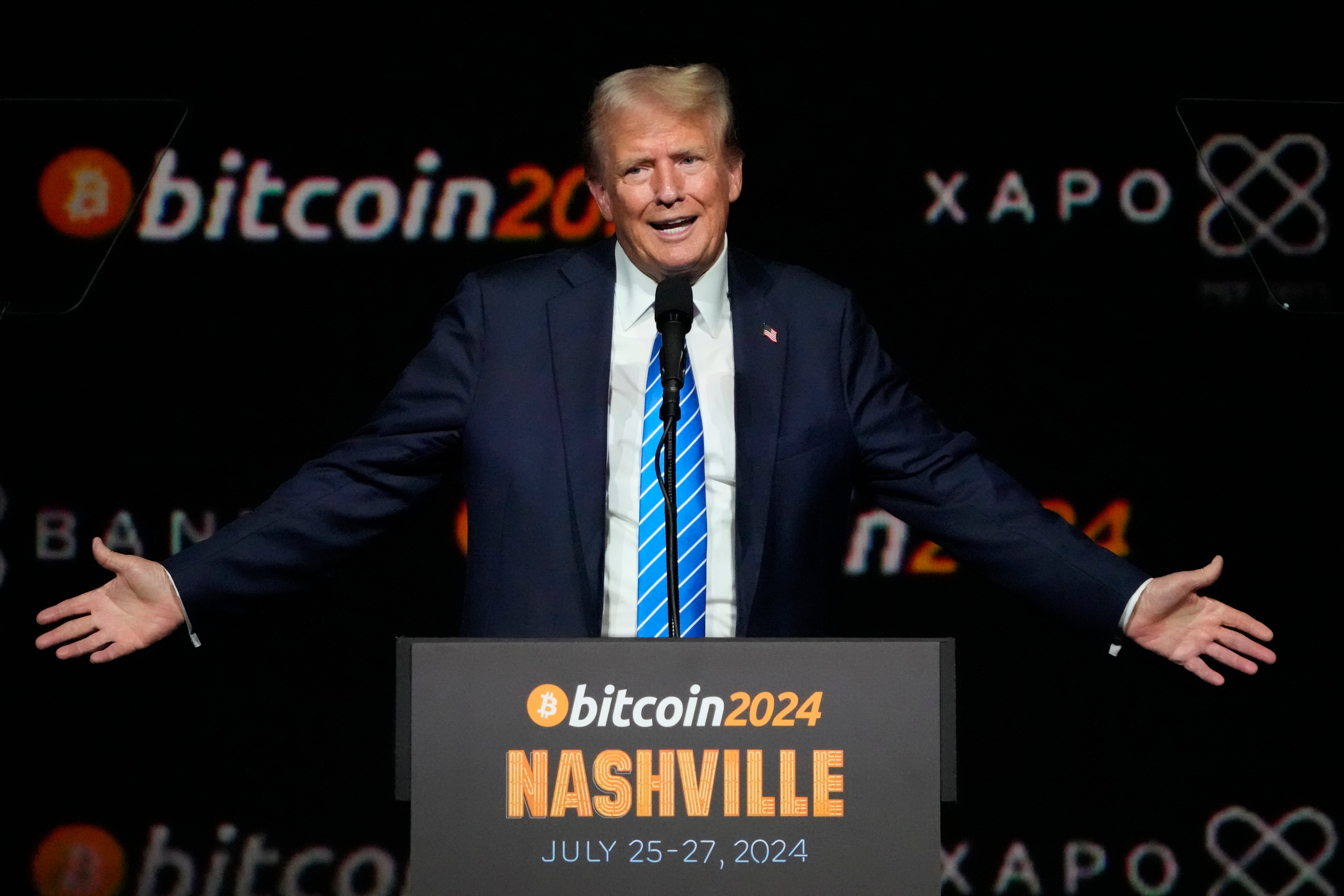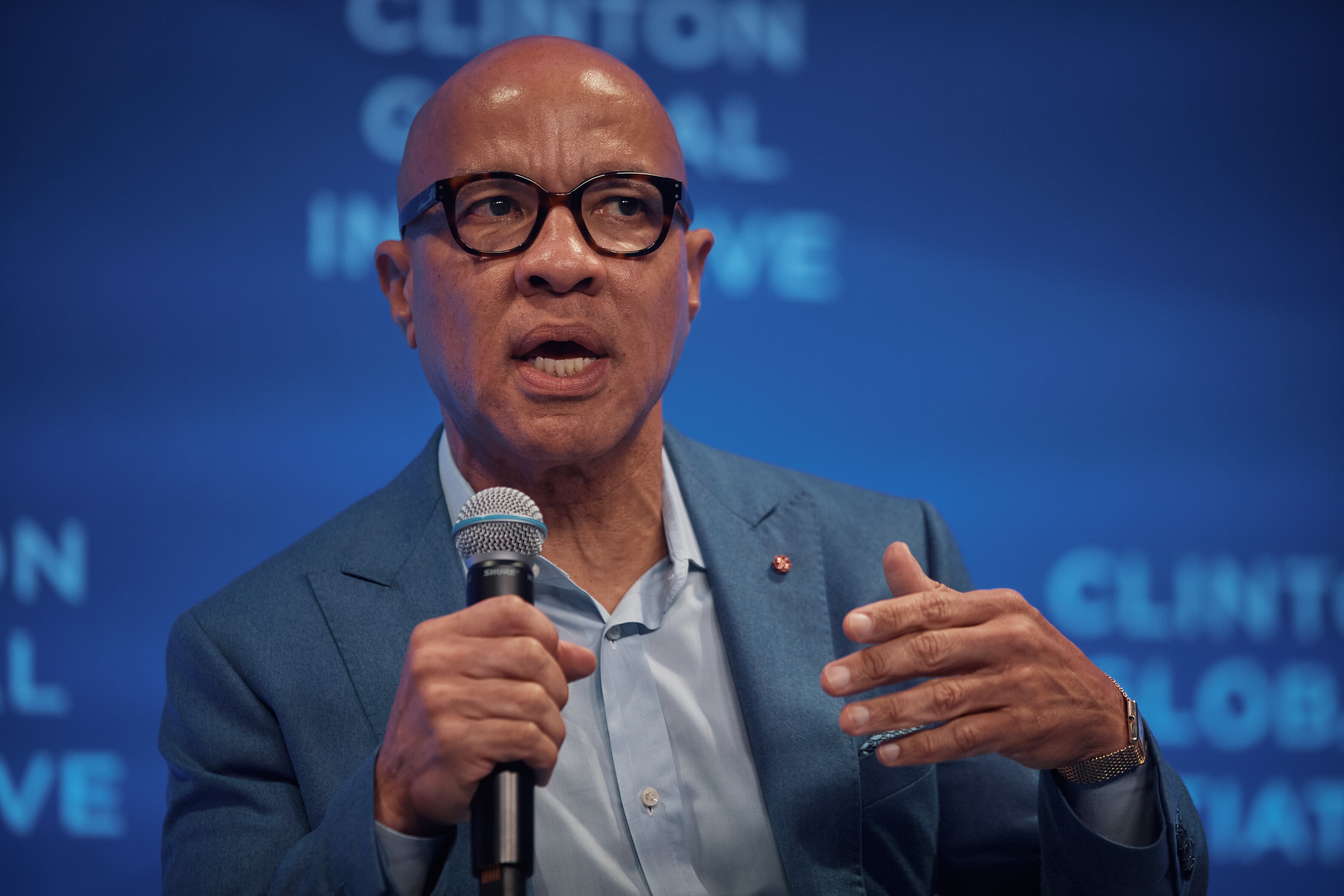WASHINGTON (AP) — Senate Democrats have blocked legislation to regulate stablecoins, a form of cryptocurrency, after arguing that the bill needed stronger protections and airing concerns that it could help President Donald Trump enrich himself.
The bill, which would regulate how stablecoin issuers operate in the U.S., had previously won some Democratic support. But it failed 49-48 on a procedural vote Thursday after Democrats said that they needed to see more changes to the legislation before they could back it.
Senate Majority Leader John Thune said that Republicans would work with Democrats if they allowed the bill to move forward, but they refused. All Democrats voted not to bring it up.
The vote is a blow to one of Trump’s top legislative priorities and a setback for the cryptocurrency industry, which spent heavily in last year’s election and has been emboldened to cement its influence in politics and the mainstream financial system. The legislation would aim to create a federal framework to regulate the stablecoin industry, which is currently governed by a patchwork of existing federal and state laws.
Stablecoins are a fast-growing corner of the cryptocurrency industry that have produced enormous profits for some of the major players involved. They offer a buffer from cryptocurrency’s notorious volatility because they are pegged to real-world assets, like U.S. dollars or gold. Typically, that means a single stablecoin is worth $1, making them a much more reliable digital asset to make commercial transactions than other forms of crypto.
While some Democrats agree that regulation is needed, and several voted to move the bill out of committee, Trump’s involvement in the crypto industry has complicated the legislation’s path. Trump launched a meme coin earlier this year that has generated more than $320 million in fees for its creators, according to the blockchain analysis firm Chainalysis. And earlier this week, Trump promoted a dinner he’s set to attend on May 22 that’s open to almost anyone who buys enough of the coins.
Another Trump-family linked crypto venture called World Liberty Financial recently announced that it was issuing its own stablecoin, called USD1. The stablecoin got a huge boost when World Liberty Financial announced last week that an investment fund in the United Arab Emirates would be using $2 billion worth of USD1 to purchase a stake in Binance, the world’s largest cryptocurrency exchange.
Among other proposed changes, Democrats said that elected officials and their families should be barred from owning, controlling or promoting stablecoin business ventures.
“The Senate should not pass a bill that facilitates Trump’s breathtaking corruption and lines his pockets and welcomes other elected officials to do the same,” said Massachusetts Sen. Elizabeth Warren.
A former skeptic turned zealous promotor, Trump has promised to usher in a golden age for the cryptocurrency industry. His administration has already taken many early actions without Congress to boost crypto, including establishing a strategic bitcoin reserve and undoing previously enforcement actions. But Trump needs Congress to get some of his and the deep-pocketed industry’s top priorities passed, including enacting the stablecoin legislation.
The legislation could still move forward if the two parties can come to a deal. Virginia Sen. Mark Warner, a Democrat who has been helping negotiate the legislation, said in a statement after the vote that he would continue to work on it.
“I remain fully committed to getting this right,” Warner said.
A group of nine Democrats, including Warner, said in a release over the weekend that they could not support the legislation until it included stronger provisions on money laundering, foreign issuers and accountability for those who violate it, among other concerns. They did not mention Trump.
“We recognize that the absence of regulation leaves consumers unprotected and vulnerable to predatory practices,” the Democrats said.
Thune, the Republican leader, questioned Democrats’ motives, speculating that they just wanted to deny Trump a bipartisan win.
“It makes you wonder if this is about the bill at all,” he said of their opposition.
___













